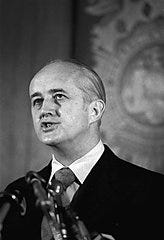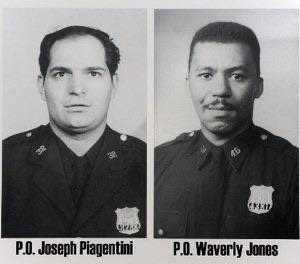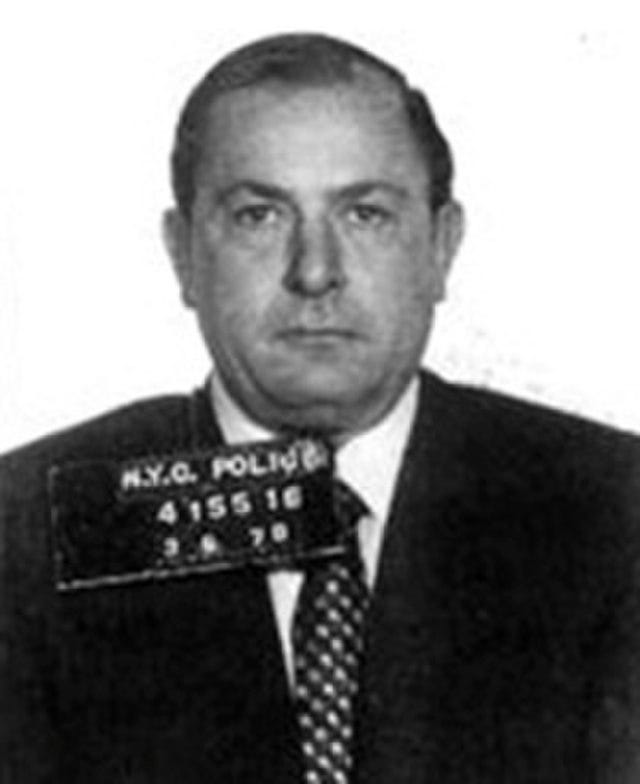Robert Daley is one of the best writers of police stories of all time. He has penned dozens of books, both fiction and non-fiction, such as Year of the Dragon and Prince of the City. Several of his books have been turned into Hollywood movies.
Daley has lived an interesting life. A Korean War Air Force Vet, public relations director for the New York Football Giants, reporter for The New York Times, author of books, world traveler… and Deputy Commissioner of Public Information for the NYPD.
Daley took on the DCPI job at the NYPD shortly after Patrick V Murphy became the Commissioner in 1970. Murphy came in as an innovator and corruption fighter. He returned to NYC at the request of Mayor Lindsay as the corruption scandals that led to the formation of the Knapp Commission were breaking. It was a tumultuous time for cops in New York City.
Daley served as DCPI for two hard years in the NYPD. Like any good reporter he seems to have taken copious notes. Shortly after leaving he penned one of his best books and our recommendation for this installment of Weekend Buff - Target Blue: An Insider's View of the N.Y.P.D. (1973).
Target Blue looks at the NYPD in a time of all-encompassing transition. Increases in crime seemed to be out of control and were starting to feel permanent. The Knapp Commission was targeting corrupt cops. Anti-corruption crusader Detective Frank Serpico was shot in the face. NYPD cops were being assassinated. The hierarchy of the police department was changing. And Commissioner Pat Murphy was trying to turn the ship around with a very unpopular series of policies and procedures.
Daley captures all of this in his book. The incoming Commissioner was an ideas man and corruption fighter. He was bookish and boring. And he was despised by the cops who saw their popularity, effectiveness, and in many cases, their gravy train of graft collapsing. He relays his insight into the politics of the city and the NYPD. He points out that Murphy moved slowly and garnered few allies. The rank-and-file cops became so outraged by Murphy that they went on strike.
Corruption was synonymous with the NYPD in the early 1970’s. Daley paints the landscape of the corruption problems and the attempts to combat it. NYPD cops David Durk, Frank Serpico, Paul Delise, and Murphy himself were all combating crime, but none were working together. Daley’s narrative details stories of widespread corruption and the attempts to end it – a difficult job in the best of times.
But the early 1970s were not the best of times. Crime was going through the roof. Homicides rose from 1117 in 1970 to 1680 in 1973. Daley uses his access to detailed crime records to paint a picture of out-of-control crime and the inability of the police to affect it.
Cops were being assassinated by members of the Black Liberation Army. Police officers were being killed at an unprecedented rate. Daley details the cases and the investigations into the murders of numerous police officers.
The mafia was engaged in the Second Columbo War. The public executions of Joe Columbo and Joey Gallo just made the police seem more inept. Daley shares his insight into the mafia and the investigations into the high-profile murders.
Daley pulls no punches in this encompassing look at a police department in serious trouble. He admires Commissioner Murphy and is clearly supportive of his cause to modernize and professionalize the NYPD. But he points to mistakes and failures as often as he does praise the Commissioner. He empathizes with the beat cops but acknowledges the bad things that were occurring in the streets, gambling halls, and drug dens. He details investigative success and failures.
Daley’s view from the halls of power within the NYPD tells a remarkable story. He sees the importance of political machinations and the effects of policy changes. He touches on the critical moves and their fall out in a book that is easy to understand and easy to read. Police insiders and casual readers alike will gain insight into the inner workings of the NYPD — indeed, of any big city police department.
In reading Target Blue, I speculated that Bill Bratton must have read this book in detail. When he took the reins of the NYPD in 1994, he seemed to have the same goals as Commissioner Murphy, but Bratton didn’t make the same mistakes. He acted openly and decisively, setting forth his mission and publicly promising success. Everyone knew where they stood. Target Blue is a book to learn from for cops and leaders.
Target Blue runs about 500 pages. Anyone with an interest in policework will not be able to put it down. You can get a digital copy from Amazon or Barnes & Nobles for $8.00, but getting a hard copy will cost you.
Either way, Michael Daley’s missive on a department in crisis is a must read for all police buffs.
Thanks for reading The Ops Desk. Stay Safe!









This might be the best of the books covering that era in NYC. It's definitely one of the best police-related books ever. I was a kid for this time and remember the state of the city. EVERYONE wanted out -- the city was unlivable. Feels like we're going back in time....
I bought this book in paperback in late '73. I still have it. This book is what sent me into law enforcement. I joined the Auxiliary Police in early 77 and stayed until late 79. I joined the Army, was an MP and retired in 96. Went straight into corporate security for 20 years. Now I am a full time university lecturer. I credit Daleys book for setting me on an awesome life path.
Tony Schilling